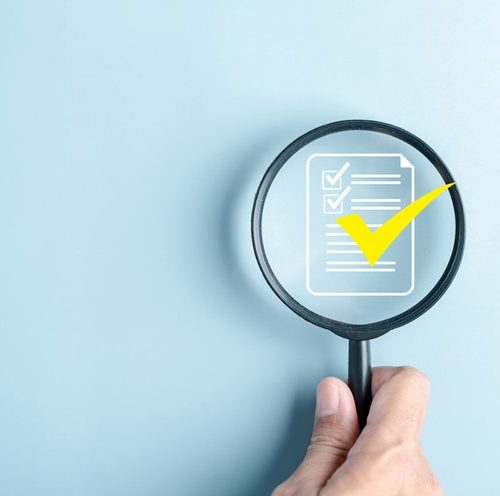

A Company Voluntary Arrangement (also known as a CVA) is a special arrangement that allows a company with debt problems or that is insolvent to reach a voluntary agreement to pay its business creditors over a fixed period of time.
The arrangement is similar to the Individual Voluntary Arrangement (IVA) that can be used by a sole-trader or self-employed person who is unable to pay their debts.
An application for a CVA can only be made with the agreement of all directors of the company in question or all of the partners of a limited liability partnership (LLP). A CVA can only be created by using the services of an insolvency practitioner. They will be responsible for set up and administration of the arrangement.
Once an insolvency practitioner has been appointed the following steps will take place:
If the agreement is approved and the company does not meet the terms of the CVA then any of the creditors can apply to have the business wound up.

Last week, we covered the new requirement for directors and persons with significant control (PSCs) to verify their identities from 18 November 2025. This process will be rolled out over 12 months, with Companies House reaching out directly to companies, providing guidance on what actions need to be taken and the deadlines for each step.
According to Companies House, ID verification is a significant step forward for UK businesses and offers numerous benefits. Ensuring that company directors and PSCs verify their identities, will help make sure that the people setting up, running and controlling companies are who they say they are.
This is intended to:
This also enhances the credibility of data held by Companies House, which is important for businesses looking to build trust with investors, consumers and potential business partners. A verified presence on the register can help a business demonstrate they are legitimate and professional, helping them stand out in the competitive business landscape.
The introduction of ID verification will also make it harder for fraudsters or criminals to create anonymous corporate structures for illicit activities. This added layer of security strengthens the business environment by reducing the risks associated with fraud and economic crime.
For businesses, being listed on Companies House with verified details can boost credibility, aiding in securing contracts, attracting investors and accessing finance. It can also enhance opportunities for due diligence, helping companies evaluate potential suppliers and customers more confidently.

From 18 November 2025, all company directors and people with significant control (PSCs) will be legally required to verify their identity at Companies House. This verification is being phased in over 12 months and Companies House is contacting companies directly with guidance regarding what needs to be done and by when.
These changes are intended to help ensure that people setting up, running and controlling companies are who they say they are. An estimated 6 to 7 million people will need to verify their identity by November 2026. The verification process will usually be a one-time requirement. Verification can be undertaken directly with Companies House through GOV.UK One Login or via an Authorised Corporate Service Provider (ACSP).
If you are using GOV.UK One Login you will be asked simple questions to find the best way for you to verify your identity. You must provide answers about yourself, not your company. Depending on your answers, you will then be guided to verify:
To verify your identity at Companies House, you can use the GOV.UK online verification service if you have one of several accepted photo identification documents. These include a biometric passport from any country, a full or provisional UK photo driving licence, a UK biometric residence permit or card or a UK Frontier Worker permit.
If you do not have any of the accepted forms of photo ID but live in the UK, there are alternative ways to verify your identity. This includes verifying your identity in-person at a Post Office or using details from your bank or building society account together with your National Insurance number.
If you are unable to verify your identity using any of the available online or in-person methods, you can appoint an ACSP, such as an accountant or solicitor to verify your identity on your behalf. The ACSP must be registered with Companies House and a UK Anti-Money Laundering (AML) supervisory body. You will need to provide approved documents as evidence of your identity and the agent may charge a fee for their services.

Company directors have a legal duty to act responsibly and in the best interests of their business. If a director fails to meet these responsibilities, they can face disqualification from acting as a company director for up to 15 years.
Disqualification can result from ‘unfit conduct,’ which includes actions such as trading while insolvent, failing to maintain proper accounting records, neglecting to submit statutory accounts to Companies House, not paying taxes or using company money or assets for personal benefit. It can also occur if a director is subject to bankruptcy or a Debt Relief Order.
The disqualification process typically begins when The Insolvency Service investigates a company involved in insolvency proceedings or responds to complaints. If misconduct is suspected, the director will be informed in writing and given the option to either defend the case in court or voluntarily accept a disqualification through a formal disqualification undertaking. Other authorities including Companies House, the courts or a company insolvency practitioner can also initiate disqualification proceedings.
Once disqualified, an individual cannot be involved in forming, marketing or running a company or be a director of any company registered in the UK or an overseas company that has connections with the UK. Breaking these rules can lead to a fine or imprisonment. Disqualified directors are listed on public registers maintained by Companies House and The Insolvency Service.

Under the Companies Act 2006, dividends can only be paid from realised profits, never from capital, no matter what a company’s Articles of Association say.
Dividends can only be paid by a company out of profits available for distribution, not from capital, even if the company’s Articles of Association suggest otherwise. This rule is established under Companies Act 2006, section 830, and forms a key legal restriction on dividend payments.
Profits available for distribution are defined as a company’s accumulated, realised profits (from both revenue and capital), not previously distributed or capitalised, minus its accumulated, realised losses, provided these losses haven’t already been written off through a formal reduction or reorganisation of capital.
HMRC’s internal manuals go further and state that the Act lays down what may be termed the ‘balance sheet surplus’ method of determining profits available for distribution. Under this, a company can distribute the net profit on both capital and revenue at the particular time, as shown by the relevant accounts.
Additional rules apply to certain types of companies including investment and public companies.

Fit and proper test fee to jump from £150 to £700 under HMRC’s proposed AML supervision changes
Many businesses are monitored by the Financial Conduct Authority (FCA) or certain professional bodies for Anti-Money Laundering (AML) purposes. However, HMRC is responsible for supervising more than 36,000 businesses in 9 business sectors. There are registration and annual fees that are charged for anti-money laundering supervision by HMRC. These fees have remained the same since May 2019, and HMRC is currently looking to increase the fees that they charge within the current fee structure to meet the costs of providing effective AML supervision.
HMRC plans to increase the premises fee from £300 to £400, representing a 33% increase since 2019. The reduced rate for small businesses will also increase from £180 to £200. Most affected businesses operate from a single premises.
The approvals fee, which ensures responsible individuals (BOOMs) are suitable for their roles, will remain unchanged at £40. However, the fit and proper (F&P) test fee, which applies to MSBs and TCSPs due to their higher risk profiles, will significantly rise from £150 to £700.
HMRC also plans to reintroduce an application fee of £400 for businesses newly registering or reapplying due to lapsed registration. Finally, the sanctions administration charge will be revised. While previously tied to the type of penalty, HMRC proposes a flat £2,000 charge for all types of sanctions, capped at the value of the penalty. A separate lower charge of £350 will still apply for specific regulatory failures.
These changes are open for comment until 29 August 2025, and it is expected that further information on when these new charges will be introduced will follow shortly afterwards.

You now need to set up a verified GOV.UK One Login to confirm your identity with Companies House.
To verify your identity at Companies House, you can use the GOV.UK online verification service if you have one of several accepted photo identification documents. These include a biometric passport from any country, a full or provisional UK photo driving licence, a UK biometric residence permit or card or a UK Frontier Worker permit.
You will also need to provide your current address along with the year you moved in, and you must sign into or create a GOV.UK One Login account to complete the process. Your verified identity will then be linked to your GOV.UK One Login account.
A recent update to the guidance published by Companies House makes it clear that each email address can only be used once for identity verification. If other individuals use the same email address to access GOV.UK One Login, they will need to register a separate account with a different email address.
If you do not have any of the accepted forms of photo ID but live in the UK, there are alternative ways to verify your identity. These include verifying your identity in-person at a Post Office or using details from your bank or building society account together with your National Insurance number.
If you are unable to verify your identity using any of the available online or in-person methods, you can appoint an Authorised Corporate Service Provider (ACSP), such as an accountant or solicitor to verify your identity on your behalf.

Identity verification is now rolling out for directors, PSCs, and agents, with more filing roles to be included soon under new anti-fraud rules.
Companies House is beginning to roll out mandatory identity verification. This is part of wider reforms introduced by the Economic Crime and Corporate Transparency Act that was granted Royal Assent in October 2023. This legislation strengthens Companies House’s authority to prevent the misuse of corporate structures and tackle economic crime.
A key feature of the Act is the requirement for identity checks for individuals involved in company formation, management, or ownership in the UK. Eventually, anyone incorporating a company or being appointed as a director or a person with significant control (PSC) will be legally required to complete identity verification.
Authorised Corporate Service Providers (ACSPs)
Since 18 March 2025, any ACSP that is defined as an individual or organisation conducting Anti-Money Laundering (AML) supervised activities must verify their identity before they can register as an authorised agent with Companies House.
Since 8 April 2025, ACSPs that are registered as authorised agents are permitted to carry out identity verification on behalf of their clients. This means that only those registered as authorised agents will be allowed to submit filings on behalf of other businesses.
Directors and Persons with Significant Control (PSCs)
Also, since 8 April 2025, directors and PSCs are able to verify their identity voluntarily. Over time, this step will move from optional to mandatory, forming a required part of compliance when forming or managing a company.
Individuals Filing with Companies House
At present, identity verification is not compulsory for individuals submitting filings to Companies House. However, this will also change in due course, with verification becoming a statutory obligation in the future.

Certain company changes—like a new registered address, email, or director—must be reported to Companies House promptly. Failure to update records risks penalties and non-compliance with UK company law.
These include the following:
Updating the registered office address
If you change your company’s registered office, you are required to notify Companies House. Note that the new address must remain within the same part of the UK where your company was initially registered. For instance, a company incorporated in England and Wales must maintain its registered address within those regions.
Your company’s new address will only be officially changed once Companies House has registered the update. Once this is done, they will automatically inform HMRC.
Changing the registered email address
If you need to update your company's official email address, this involves a separate process. To change a registered email address a request should be made at https://find-and-update.company-information.service.gov.uk/registered-email-address
Other changes that require notification
You should inform HMRC if there are updates to your contact information, business name, or if you appoint an accountant or tax adviser.
You must also notify Companies House within 14 days of any changes involving:
Finally, if you issue new shares, Companies House must be notified within a month.
You can report these changes using the Companies House online service or by submitting the appropriate paper forms.

New rules under the Economic Crime and Corporate Transparency Act mean identity checks will soon be required at Companies House. From directors to agents, all those running UK companies will need to verify who they are as part of tougher anti-fraud measures.
This Act enhances Companies House's powers to combat the abuse of corporate structures and address economic crime. Among its provisions was the introduction of identity verification for individuals who are setting up, running, owning, or controlling a company in the UK. Ultimately, identity verification will be a compulsory part of the incorporation process and necessary for appointing new directors and PSCs.
Authorised Corporate Service Providers (ACSPs)
Since 18 March 2025, Authorised Corporate Service Providers (ACSPs) have been required to verify their identity if they wish to register as a Companies House authorised agent. ACSPs include individuals or organisations that carry out Anti-Money Laundering (AML) supervised activities.
From 8 April 2025, ACSPs registered as authorised agents will be able to verify their clients' identities. In the future, businesses will also need to be registered as authorised agents to file documents on behalf of their clients.
Directors, Persons with Significant Control (PSCs
From 8 April 2025, individuals such as company directors and persons with significant control (PSCs) will have the option to voluntarily verify their identity. In the future, this will become a mandatory legal requirement.
People who file at Companies House
Identity verification is not yet mandatory for individuals filing at Companies House. In the future, this will change and become a legal requirement.